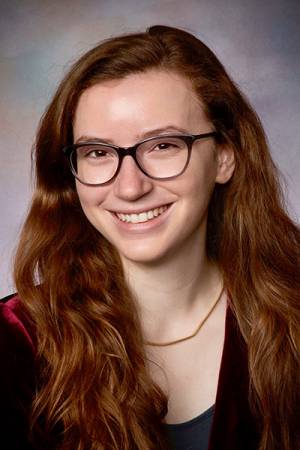PhD Speaking Qualifier
Continually Improving Robots
Abstract: General purpose robots should be able to perform arbitrary manipulation tasks, and get better at performing new ones as they obtain more experience. The current paradigm in robot learning involves training a policy, in simulation or directly in the real world, with engineered rewards or demonstrations. However, for robots that need to keep learning [...]
3D-aware Conditional Image Synthesis
Abstract: We propose pix2pix3D, a 3D-aware conditional generative model for controllable photorealistic image synthesis. Given a 2D label map, such as a segmentation or edge map, our model learns to synthesize a corresponding image from different viewpoints. To enable explicit 3D user control, we extend conditional generative models with neural radiance fields. Given widely-available posed [...]
Robotic Climbing for Extreme Terrain Exploration
Abstract: Climbing robots can investigate scientifically valuable sites that are inaccessible to conventional rovers due to steep terrain features. Robots equipped with microspine grippers are particularly well-suited to ascending rocky cliff faces, but existing designs are either large and slow, or limited to relatively flat surfaces such as buildings. We have developed a novel free-climbing [...]
Multi-Objective Ergodic Search for Dynamic Information Maps
Abstract: Robotic explorers are essential tools for gathering information about regions that are inaccessible to humans. For applications like planetary exploration or search and rescue, robots use prior knowledge about the area to guide their search. Ergodic search methods find trajectories that effectively balance exploring unknown regions and exploiting prior information. In many search based [...]
Observing Assistance Preferences via User-controlled Arbitration in Shared Control
Abstract: What factors influence people’s preferences for robot assistance during human-robot collaboration tasks? Answering this question can help roboticists formalize definitions of assistance that lead to higher user satisfaction and increased user acceptance of assistive technology. Often in human robot collaboration literature, we see assistance paradigms that aim to optimize task success metrics and/or measures [...]
Safely Influencing Humans in Human-Robot Interaction
Abstract: Robots are becoming more common in industrial manufacturing because of their speed and precision on repetitive tasks, but they lack the flexibility of human collaborators. In order to take advantage of both humans’ and robots’ abilities, we investigate how to improve the efficiency of human-robot collaborations by making sure that robots both 1. stay [...]
Inductive Biases for Learning Long-Horizon Manipulation Skills
Abstract: Enabling robots to execute temporally extended sequences of behaviors is a challenging problem for learned systems, due to the difficulty of learning both high-level task information and low-level control. In this talk, I will discuss three approaches that we have developed to address this problem. Each of these approaches centers on an inductive bias [...]
Analogy-Forming Transformers for Few-Shot 3D Parsing
Abstract: How do we build agents that can fast generalize to novel scenarios given only a single example? In this talk, I will present analogy-forming transformers, a semi-parametric model that segments 3D object scenes by retrieving related memories and predicting analogous part structures for the input. This enables a single neural network to continually learn [...]
Range-based Gaussian Process Maps for Mobile Exploration Robots
Abstract: Mobile robots exploring unknown, natural environments with limited communication must map their surroundings using onboard sensors. In this context, terrain mapping can rely on Gaussian process models to incorporate spatial correlations and provide uncertainty estimates when predicting ground height - however, these models fail to account for the oblique viewpoint of a sensor on [...]
Learning Exploration Strategies to Solve Real-World Marble Runs
Abstract: Tasks involving locally unstable or discontinuous dynamics (such as bifurcations and collisions) remain challenging in robotics, because small variations in the environment can have a significant impact on task outcomes. In this talk, we present a robot system that we developed to evaluate learning algorithms on real-world physical problem solving tasks which incorporate these [...]







